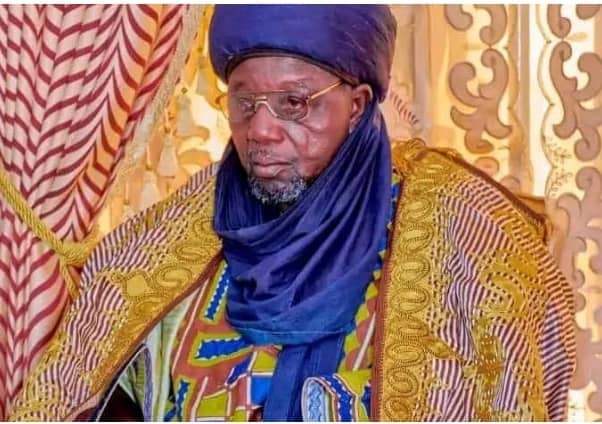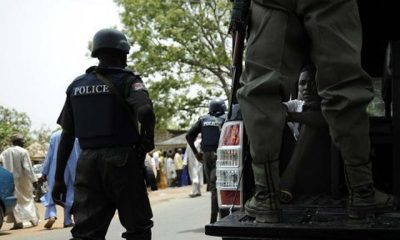SPECIAL REPORT
Urgent Need For Introspection On Insecurity In Northern Nigeria: A Wake-Up Call Following The Murder Of Emir Of Gobir

By Abdulkadir Ibrahim Kezo IkonAllah*

A revered Traditional ruler
The recent murder of the Emir of Gobir by bandits in northern Nigeria has sent shockwaves across the country. It serves as a stark reminder of the region’s long-standing insecurity. This tragic event is not an isolated incident; it is part of a larger, deeply entrenched crisis that necessitates immediate and honest introspection by all stakeholders in the country. As we mourn the loss of a respected traditional leader, we must reflect on the root causes of insecurity and chart a course for long-term peace and security in northern Nigeria.
A Growing Crisis
For more than a decade, northern Nigeria has been a hotspot for violence and insecurity, with various groups such as Boko Haram, ISWAP, and numerous bandit groups wreaking havoc on communities. The killing of Gobir’s Emir is just the latest in a string of brutal attacks on not only civilians but also symbols of traditional authority and governance. The situation has reached a tipping point, and the very fabric of society is at risk.
The increase in banditry, kidnappings, and communal violence in the region has been concerning. Thousands of people have died, countless families have been displaced, and economic activity has been severely disrupted. The death of a leader like the Emir of Gobir, who was a custodian of culture and a symbol of unity, strikes not only his emirate but the entire nation. It raises serious concerns about the security, governance, and social cohesion in northern Nigeria.
The Root Causes Of Insecurity
To address the insecurity in northern Nigeria, we must first understand the root causes of the crisis. Several factors have contributed to the deteriorating security situation, including:
1. Weak Governance and Corruption: Poor governance and widespread corruption have eroded public trust in state institutions. In many cases, security forces are underequipped, underpaid, and even complicit in criminal activities. This has created a vacuum, which bandits and insurgents have used to advance their agendas.
2. Poverty and Unemployment: Northern Nigeria is one of the country’s poorest regions, with high unemployment rates and limited educational opportunities. Due to a lack of economic opportunities, young people are vulnerable to recruitment by armed groups, which offer financial incentives and a sense of purpose.
3. Ethnic and Religious Tensions: The region is divided into a complex web of ethnic and religious groups, which has been exacerbated by competition for limited resources. These tensions have frequently escalated into violence, further destabilising communities and creating a climate of fear and mistrust.
4. Climate Change and Resource Scarcity: The effects of climate change, such as desertification and declining water resources, have heightened competition for land and resources, resulting in clashes between farmers and herders. These conflicts have been used by bandits and insurgents to further destabilise the region.
The Need for Introspection
In the aftermath of the Emir’s murder, there is an urgent need for introspection at all levels of society. This introspection must go beyond rhetoric and result in concrete steps to address the underlying causes of insecurity. It necessitates a multifaceted approach that includes government, traditional leaders, civil society, and the global community.
1. Reforming Security Institutions: Nigeria’s security institutions require urgent reform and strengthening. This includes improving security personnel’s training, equipment, and welfare, as well as combating internal corruption. The government must also improve intelligence-gathering capabilities and promote better coordination among security agencies.
2. Addressing Socio-Economic Inequalities: To break the cycle of violence, it is critical to address the socioeconomic disparities that fuel instability. This includes creating job opportunities, improving educational access, and investing in the region’s infrastructure. Economic empowerment is critical in reducing the appeal of banditry and insurgency among the youth.
3. Promoting Dialogue and Reconciliation: Efforts should be made to encourage dialogue and reconciliation among northern Nigeria’s various ethnic and religious groups. Traditional leaders, religious figures, and civil society organisations play an important role in promoting peace and understanding. The government should support initiatives that seek to resolve conflicts through nonviolent means.
4. Leveraging Traditional Leadership: The assassination of Gobir’s Emir highlights the importance of protecting and empowering traditional leaders, who play a critical role in maintaining social cohesion and providing grassroots leadership. Their involvement in peacebuilding and conflict resolution efforts is critical to long-term stability.
Conclusion
The tragic death of the Emir of Gobir should serve as a wake-up call to Nigeria. Northern Nigeria’s insecurity is more than a regional issue; it is a national crisis that threatens the country’s very foundation. It is time for all stakeholders to engage in serious introspection and take bold action to address the underlying causes of this insecurity. Nigeria can only achieve long-term peace and security in the region if all parties work together. The bloodshed must end, and northern Nigeria’s future must be secure for future generations.
-
CRIME3 years ago
PSC Dismisses DCP Abba Kyari, To Be Prosecuted Over Alleged $1.1m Fraud
-
FEATURED3 years ago
2022 Will Brighten Possibility Of Osinbajo Presidency, Says TPP
-
FEATURED2 years ago
Buhari’s Ministers, CEOs Should Be Held Accountable Along With Emefiele, Says Timi Frank
-
BUSINESS & ECONOMY2 years ago
Oyedemi Reigns As 2023’s Real Estate Humanitarian Of The Year
-
SPORTS1 year ago
BREAKING: Jürgen Klopp Quits Liverpool As Manager At End Of Season
-
SPORTS2 years ago
Could Liverpool Afford Kylian Mbappe For €200 million? Wages, Transfer Fee
-
ENTERTAINMENT2 years ago
Veteran Nigerian Musician, Basil Akalonu Dies At 72
-
FEATURED2 years ago
Tribunal Judgement: Peter Obi Warns Of Vanishing Electoral Jurisprudence, Heads To Supreme Court
-
BUSINESS & ECONOMY2 years ago
Oyedemi Bags ‘Next Bulls Award’ As BusinessDay Celebrates Top 25 CEOs/ Business Leaders
-
FEATURED3 years ago
2023 Presidency: South East PDP Aspirants Unite, Demand Party Ticket For Zone



































